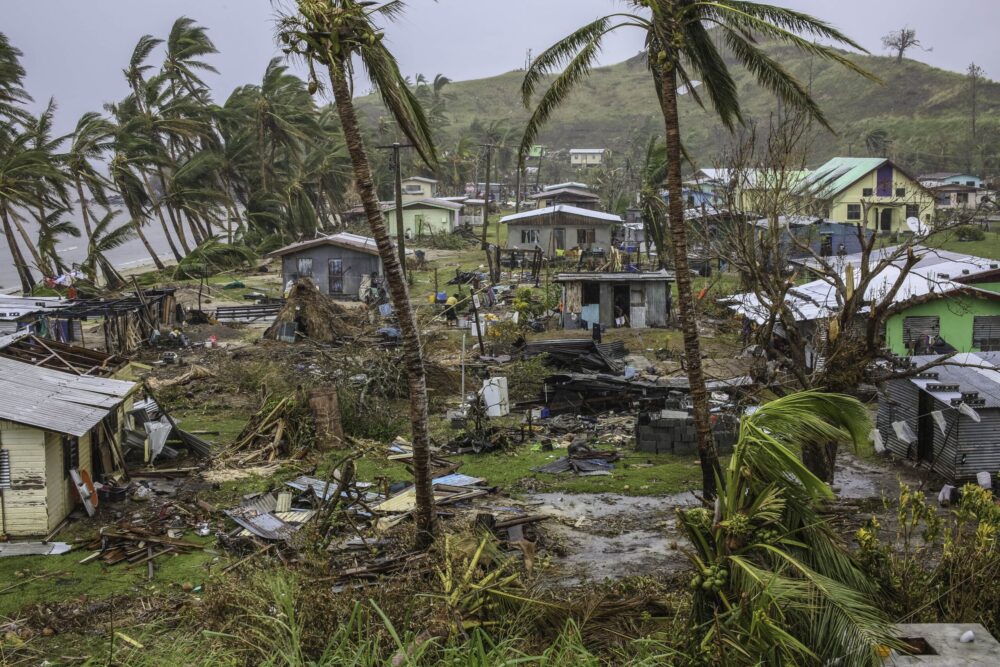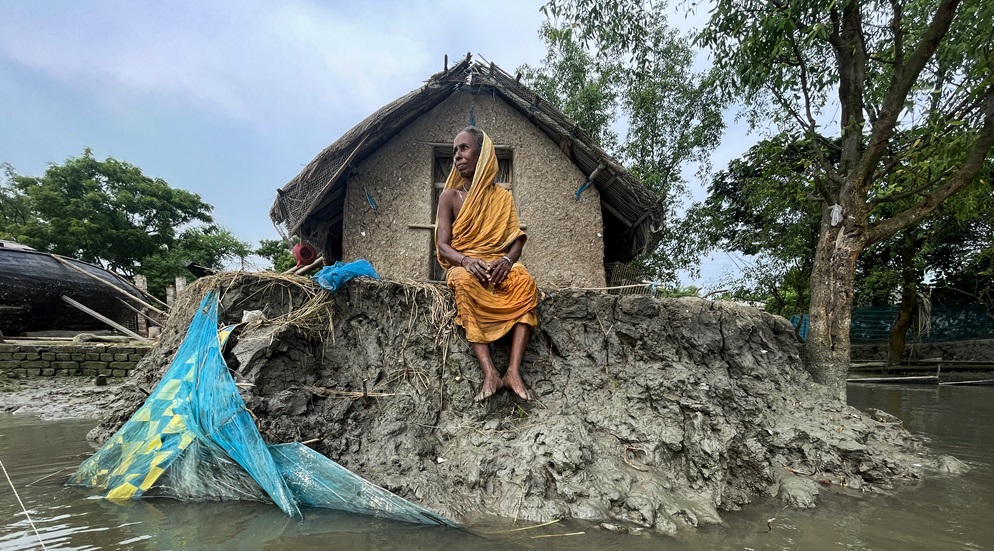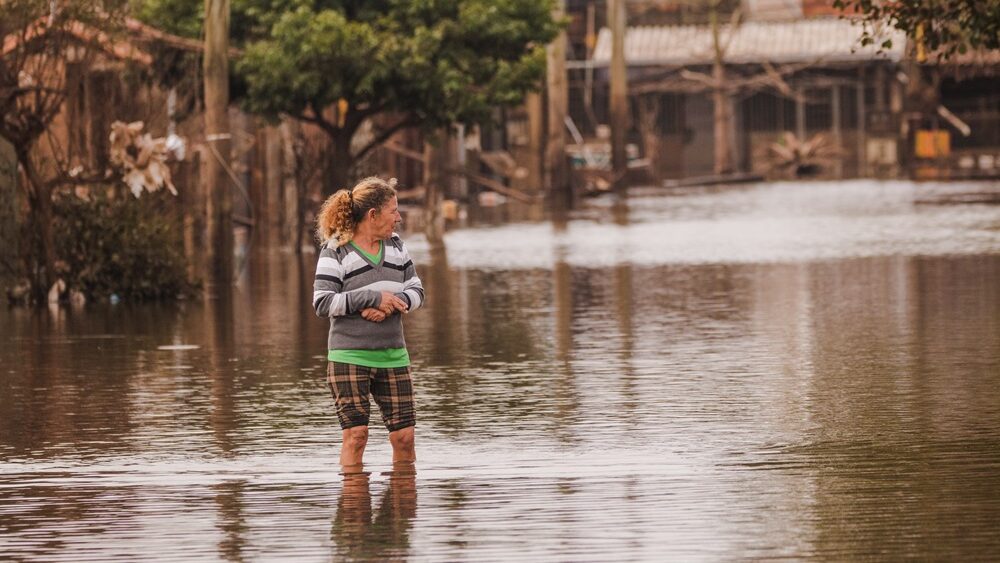Bula vinaka! Greetings!
This special edition of Forced Migration Review focusing on displacement and planned relocation in the context of climate change could not come at a more appropriate time. We urgently need to translate our commitments into meaningful action. Throughout COP26 in Glasgow, the Fijian government called upon all countries to show more commitment – of political will and financing – towards collective and ambitious action that secures a deal to keep the 1.5 degrees goal alive.
This is an important call for action. In Fiji we have seen at first hand the effects of climate change, with an increase in the number of tropical cyclones affecting our country and with sea level rises starting to inundate some of our islands and coastal communities. Communities are being displaced or relocated as a result, as you read this.
The Internal Displacement Monitoring Centre’s 2021 Global Report on Internal Displacement estimates that in 2020 alone around 40.5 million new displacements were recorded. Disasters triggered over three times more displacement than conflict and violence. This is a stark reminder of why the imminent threat of climate change must be taken seriously. If the threat is left unchecked, we should anticipate that the global outlook not only for internal but also for cross-border displacement will continue to worsen and it will be more difficult for States to address this trend.
Fight for survival
Fiji made it clear at the international climate negotiations that the Pacific’s intention is to ‘fight for survival’. We view climate change as an existential threat because of its impact on our culture and traditional way of life, its impact on our ocean and its marine resources and ecosystems, and its impact on our land and on food and water security and, most importantly, on the natural environment that sustains all human life on this planet.
For low-lying island states facing the reality of submersion if sea levels continue to rise, it would mean a threat to territoriality and perhaps sovereignty, in addition to the threat to lives and livelihoods. For areas affected by desertification, it could mean potential famine and drought. For areas plagued by frequent forest fires, it might lead to loss of homes and the loss of lives of family and friends. States, the international community, non-governmental organisations and other relevant stakeholders must consider what needs to be done – and done urgently – to promote and protect human rights in the face of these existential threats.
Understanding the human rights dimension is very important. At the UN Human Rights Council in October 2021, the Council adopted a resolution establishing a Special Rapporteur on Climate Change. Fiji was part of the core group that presented this resolution for adoption, recognising climate change as an existential threat with cross-regional, multifaceted impacts.
As the current chair of the Pacific Island Forum, we fully understand that the gravest consequence is the possible extinction of our islands. This underpins our need to understand the challenges around disaster-related displacement and climate-induced human mobility within the Pacific region. We will need further discussion in the Pacific Islands Forum about the intrinsic link between climate change impacts, regional security, and climate-induced human mobility.
Beyond political boundaries and local interests
The work on internal displacement is important and resonates with Fiji’s involvement with the Platform on Disaster Displacement. Through the Platform, we work with others to understand displacement and human mobility in the context of disasters and climate change and to explore the actions that are needed to address this issue. Together we need to agree on what can be done collectively as a community of practice to ensure that we transform our commitments into more concrete, tangible actions, and to ensure that we support implementation of integrated and regional approaches, bringing together climate change action, disaster risk reduction and development efforts.
Our conversations about how to address the challenges posed by disaster displacement must extend beyond political boundaries. In Fiji, we have developed specific guidance on addressing the two distinct processes of planned relocation and climate-induced displacement. In terms of planned relocation, Fiji has completed the relocation of five communities that were severely impacted by both slow-onset and sudden-onset climatic events. In response to the impact of Tropical Cyclone Yasa in 2020, we are now working on relocating two communities (Nabavatu and Cogea) located in the Province of Bua on Fiji’s second largest island which was gravely affected by landslides as a result of heavy rain and flooding.
To ensure that we strengthen our work relating to planned relocation and displacement, Fiji’s new Climate Change Act of 2021 provides the legal framework for our whole-of-government approach to addressing these issues. Integral to our approach is our commitment to ensuring that our systems and processes are transparent and inclusive, so that the State upholds and protects the human rights of all affected persons and that no one is left behind.
It is our hope that this special edition of Forced Migration Review continues this conversation. Expanding our knowledge around climate-induced displacement and other forms of human mobility is important. As we seek to care for a changing world in a changing climate, and to address the challenges this presents, understanding the specific protection needs and challenges of affected people is vital if we are to have the necessary legal systems and institutional processes in place to provide protection for all. We call on all governments and stakeholders to join us in engaging wholeheartedly and urgently in implementing and stepping up our shared commitments. Given that the climate crisis is already having a significant impact on people’s lives, there can be no greater imperative.
Cover photo: © IFRC





